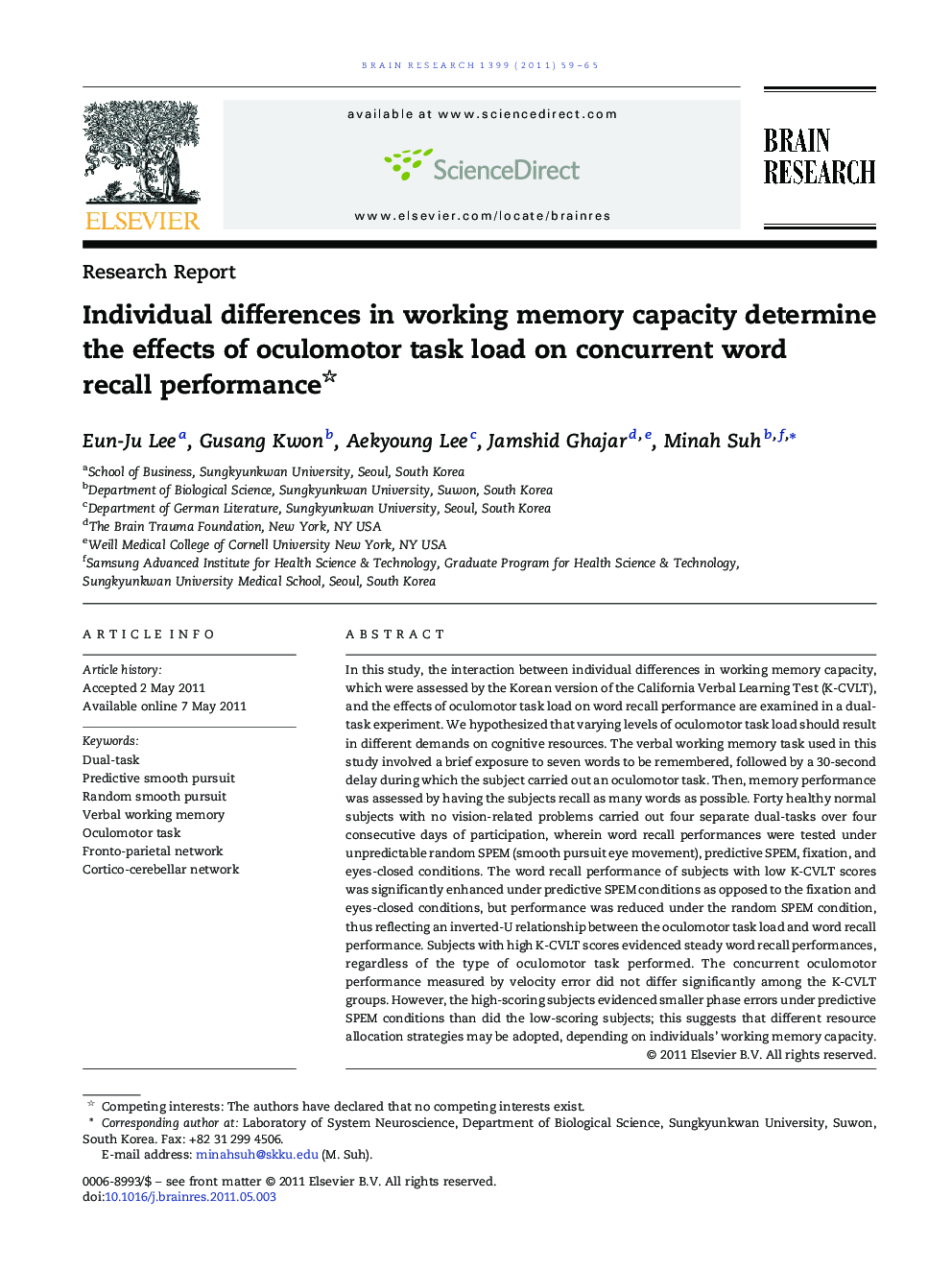| کد مقاله | کد نشریه | سال انتشار | مقاله انگلیسی | نسخه تمام متن |
|---|---|---|---|---|
| 4325846 | 1614040 | 2011 | 7 صفحه PDF | دانلود رایگان |

In this study, the interaction between individual differences in working memory capacity, which were assessed by the Korean version of the California Verbal Learning Test (K-CVLT), and the effects of oculomotor task load on word recall performance are examined in a dual-task experiment. We hypothesized that varying levels of oculomotor task load should result in different demands on cognitive resources. The verbal working memory task used in this study involved a brief exposure to seven words to be remembered, followed by a 30-second delay during which the subject carried out an oculomotor task. Then, memory performance was assessed by having the subjects recall as many words as possible. Forty healthy normal subjects with no vision-related problems carried out four separate dual-tasks over four consecutive days of participation, wherein word recall performances were tested under unpredictable random SPEM (smooth pursuit eye movement), predictive SPEM, fixation, and eyes-closed conditions. The word recall performance of subjects with low K-CVLT scores was significantly enhanced under predictive SPEM conditions as opposed to the fixation and eyes-closed conditions, but performance was reduced under the random SPEM condition, thus reflecting an inverted-U relationship between the oculomotor task load and word recall performance. Subjects with high K-CVLT scores evidenced steady word recall performances, regardless of the type of oculomotor task performed. The concurrent oculomotor performance measured by velocity error did not differ significantly among the K-CVLT groups. However, the high-scoring subjects evidenced smaller phase errors under predictive SPEM conditions than did the low-scoring subjects; this suggests that different resource allocation strategies may be adopted, depending on individuals' working memory capacity.
Research highlights
► Predictive and random smooth pursuit tasks exert differential effects on concurrent word recall performance depending individual's cortical capacity.
► The dynamic allocation of cortical resources is the function of individual working memory capacity, which can determine dual-task performance.
► High cortical load of complex oculomotor task can compromise low capacity individuals' verbal recall performance.
Journal: Brain Research - Volume 1399, 5 July 2011, Pages 59–65